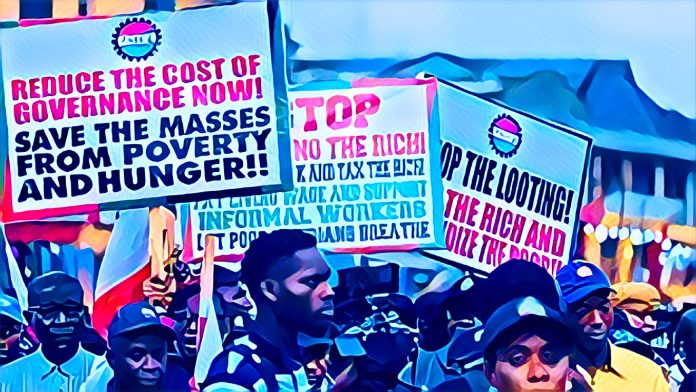KEY POINTS
- By June 2024, inflation reached 34.19 percent, the highest in decades, with food inflation at 40.87 percent, exacerbating food insecurity.
- The naira has lost significant value, leading to a sharp rise in the cost of imported goods.
- More than 26 million Nigerians face severe food insecurity due to high prices and supply chain disruptions.
In the last six months, Nigeria has witnessed an increasing cost of living crisis that has put a lot of pressure on millions of its population.
Some of the factors that have led to this crisis include; the recent withdrawal of fuel subsidies, record high inflation rates, and a sharply declining currency.
These have led to increase in food insecurity, protests across the country, and various measures taken by the government to reduce the burden on the economy.
Government reforms and their impact
The new administration of President Bola Tinubu, who assumed office in May 2023, proposed a number of measures to address the Nigerian economy’s volatility.
Among the most important steps, one can mention the removal of fuel subsidies, which was aimed at liberating the government’s financial resources and increasing the transparency of fuel prices.
But this decision resulted in an increase in fuel prices within the shortest time possible. As a direct result of the above, the cost of transportation went up and this translated to higher costs in all sectors of the economy. Inflation was 34.19 percent by June the highest level in decades with food inflation hitting a high of 40.87 percent according to Forbes Africa.
Another factor that has worsened the situation is the fluctuating exchange rate especially the Nigerian naira. The currency has depreciated significantly against the U. S. dollar, making imports like food, medicine and fuel expensive.
This currency crisis, alongside high inflation rates, has reduced the purchasing power per capita for an average Nigerian household, and many cannot even afford basic needs.
Critics say that even though these reforms were needed to bring about long-term economic stability, their short-term impact has been catastrophic.
Food insecurity and inflation
Nigeria, for instance, which has been importing most of its food, has had to endure a hike in the prices of food stuffs after the implementation of the reforms.
The prices of cooking gas, bread and other basic commodities have more than doubled in the past one year and this has greatly affected households.
According to the Food and Agriculture Organization (FAO), more than 26 million people in Nigeria, or 14 percent of the population, may face acute food insecurity this year.
High food prices have also led to social unrest and there are reports of trucks loaded with foods such as pasta and rice being intercepted in the rural areas.
This is rather worrisome given the fact that over 50 percent of the average Nigerian household’s income is spent on food alone.
This has compounded the country’s chronic food insecurity problem especially in the northern region of Nigeria where abductions and other acts of insecurity have continued to complicate food supply chains.
Public Protests and Government Response
The food scarcity situation worsened in the country when in July 2024, President Tinubu declared a state of emergency. The government said it will provide grains and other food items to the affected regions but many Nigerians believe that these efforts are inadequate given the severity of the situation.
Furthermore, the Central Bank of Nigeria has increased the interest rates to 22% in a bid to tackle inflation and stabilize the currency but this has not had the desired effect.
In recent protests against rising living costs, Nigerian authorities have charged ten protesters with treason, a serious charge that carries the death penalty. These individuals were arrested during the #EndBadGovernance protests that erupted across the country in August 2024, calling for economic relief.
The government’s actions have drawn criticism from human rights groups, including Human Rights Watch, which urges the government to drop these charges and respect citizens’ rights to peaceful protest. The crackdown reflects the growing tensions as Nigerians demand solutions to their worsening economic hardship.
Long-term outlook and economic reforms
Though the government’s reforms have been applauded by the international financial organizations for correcting structural problems in the Nigerian economy, they have been painful for the ordinary Nigerian in the short run.
The elimination of the fuel subsidy and the devaluation of the naira were regarded as measures that would help to rebuild investors’ confidence and attract foreign investment, while millions of Nigerians have been pulled into poverty.
Although these reforms may open the path to a more stable and rich economy in the long run, the social and economic costs are likely to deteriorate if there are no short-term measures to alleviate the situation.
In the future, as the prices of food, fuel, and other necessities continue to increase, the government will have to focus on addressing the needs of the most sensitive groups and rebuilding the population’s confidence.



